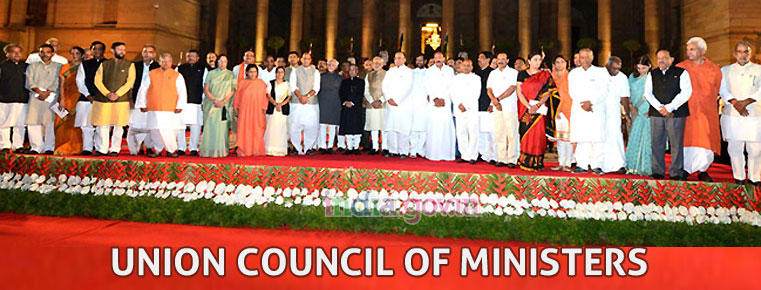
1. The Prime Minister of India is appointed by:
a) The President
b) The Lok Sabha
c) The Council of Ministers
d) The Vice President
Answer: a) The President
2. Which of the following is a qualification for becoming the Prime Minister of India?
a) Must be a member of the Lok Sabha
b) Must be a member of the Rajya Sabha
c) Must be a member of either House of Parliament
d) Must be an MLA
Answer: c) Must be a member of either House of Parliament
3. Who advises the President in the appointment of the Prime Minister when no party has a clear majority in the Lok Sabha?
a) The Chief Justice of India
b) The Speaker of the Lok Sabha
c) The Leader of the majority party
d) The Council of Ministers
Answer: b) The Speaker of the Lok Sabha
4. Which Article of the Indian Constitution mentions the position of the Prime Minister?
a) Article 74
b) Article 75
c) Article 76
d) Article 78
Answer: b) Article 75
5. The Prime Minister of India is the head of:
a) The Legislature
b) The Judiciary
c) The Executive
d) The State
Answer: c) The Executive
6. Which of the following powers does the Prime Minister of India not possess?
a) Advising the President to appoint ministers
b) Acting as a link between the President and the Cabinet
c) Presiding over joint sessions of Parliament
d) Leading the Council of Ministers
Answer: c) Presiding over joint sessions of Parliament
7. The Prime Minister can remain in office as long as:
a) The Rajya Sabha has confidence in him
b) The President has confidence in him
c) He enjoys the confidence of the majority in the Lok Sabha
d) He enjoys the confidence of both Houses of Parliament
Answer: c) He enjoys the confidence of the majority in the Lok Sabha
4.10 Prime Ministers of India
Name Party Name Time Period
Pt. Jawahar Lal Nehru 1 Indian National Congress 15 Aug 1947 - 27 May 1964
Gulzari Lal Nanda INC 27 May 1964 - 9 June 1964 (acting)
Lal Bahadur Shastri 2 INC 9 June 1964 - 11 Jan 1966
Gulzari Lal Nanda INC 11 Jan 1966 - 24 Jan 1966 (acting)
Indira Gandhi 3 Congress (I) 24 Jan 1966 - 24 Mar 1977
Morarji Desai 4 Janata Party 24 Mar 1977 - 28 July 1979
Ch. Charan Singh 5 Janta Party(s) 28 July 1979 - 14 Jan 1980
Indira Gandhi 6 Congress (I) 14 Jan 1980 - 31 Oct 1984
Rajiv Gandhi 7 Congress (I) 31 Oct 1984 - 1 Dec 1989
V P Singh 8 Janta Dal 2 Dec 1989 - 10 Nov 1990
Chander Shekhar 9 Samajwadi Janata Party 11 Nov 1990 - 21 Jan 1991
P V Narsimha Rao 10 Congress (I) 21 June 1991 - 16 May 1996
Atal Bihari Vajpayee 11 BJP 16 May 1996 - 31 May 1996
H D Devegowda 12 Janata Dal 1 June 1996 - 20 Apr 1997
I K Gujral 13 Janata Dal 21 Apr 1997 - 18 Mar 1998
Atal Bihari Vajpayee BJP 19 Mar 1998 - 13 Oct 1999
Atal Bihari Vajpayee BJP 13 Oct 1999 - May 2004
Manmohan Singh 14 Congress 22 May 2004 - 26 May 2014
Narendra Modi 15 BJP 26 May 2014 - 30 May 2019
Narendra Modi 15 BJP 26 May 2019- 10 June 2024
Narendra Modi 15 BJP 10 June 2024-
